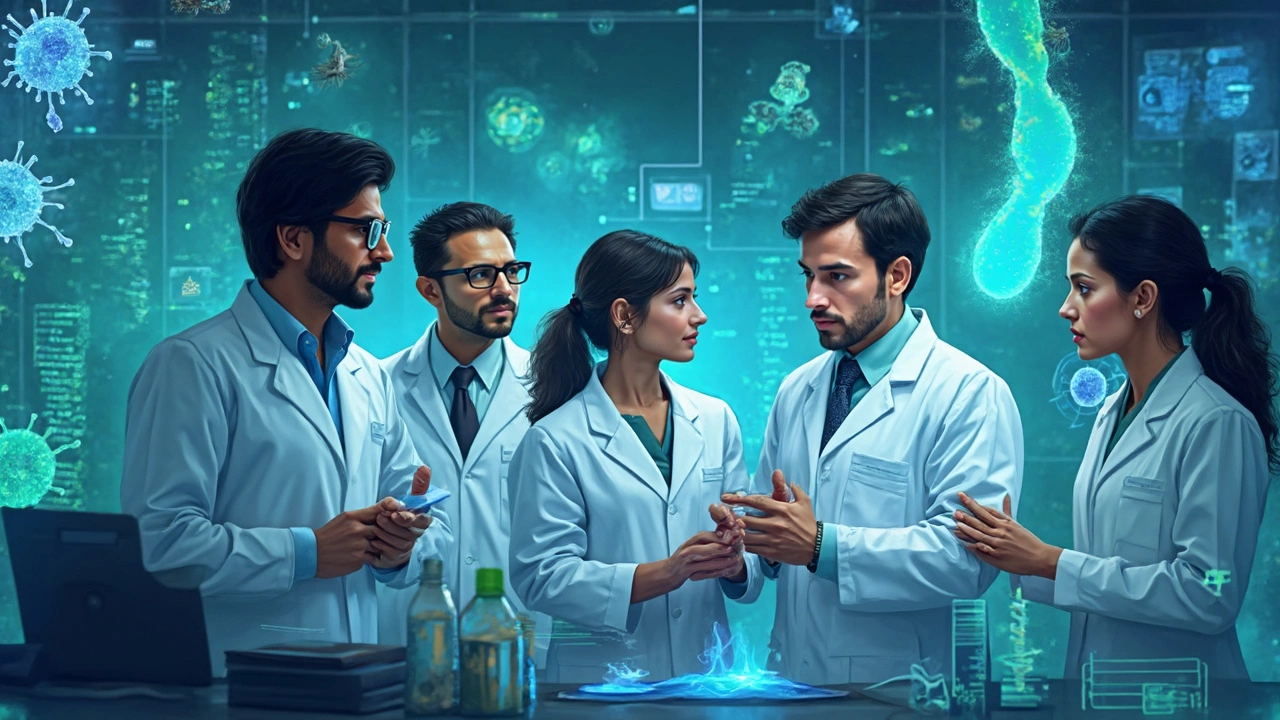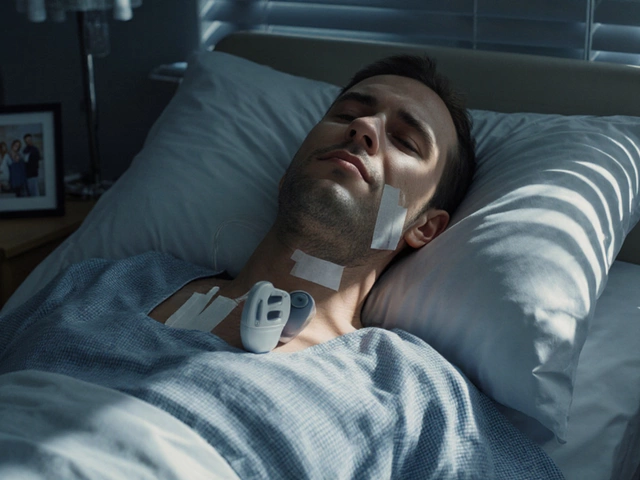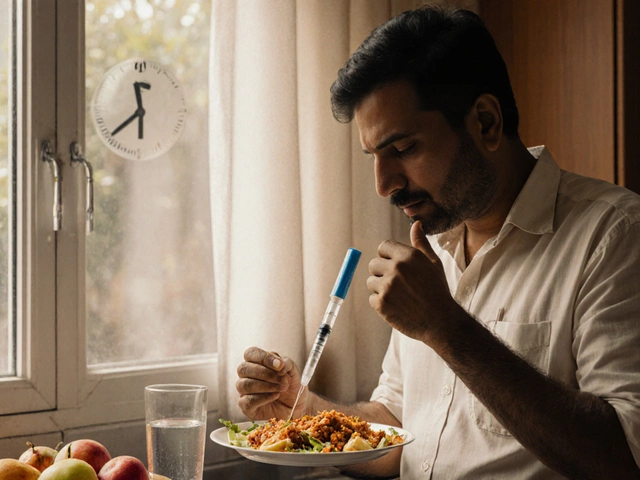Alright, let's get straight to the point. Can you fully beat cancer? It's probably the question that's crossing your mind or someone you know if you've been touched by this stubborn disease. The answer isn’t black and white, but it's more hopeful than ever before thanks to cutting-edge advancements in treatment and early detection methods.
Cancer, as tricky as it is, isn't an automatic life sentence these days. With personalized medicine, where treatments are tailored to your specific genetic makeup, and innovative therapies like immunotherapy, the fight against cancer is changing dramatically. These treatments are designed to give your own body's defenses a turbo boost to tackle cancer cells more effectively.
Of course, while treatment is crucial, don't underestimate the power of lifestyle changes. Eating right, exercising, and even just learning to manage stress can be game changers in this journey. They're like adding additional gears to your car—it just runs better in every situation.
Understanding all these moving parts—how treatments work, what options you have, and what you can do outside of the hospital—is key to taking control of your path through cancer. Whether it's you facing cancer or someone you care about, knowledge and the right mindset are vital allies. So, what do you say? Ready to dive deeper?
- Understanding Cancer and Its Challenges
- From Diagnosis to Treatment: What to Expect
- The Role of New Technologies and Therapies
- How Lifestyle Changes Can Support Recovery
Understanding Cancer and Its Challenges
Cancer's a mixed bag. At its core, it’s a group of diseases where cells in the body start growing out of control. Sounds pretty overwhelming, right? But the first step in tackling it is breaking it down into what we're dealing with. There are over 100 types of cancer, with different behaviors, rates of growth, and responses to treatment. Knowing which particular cancer treatment works best usually depends on where it starts and if it has spread.
You're probably asking, why is cancer so tough to beat? Truth is, it's partly because cancer cells are sneaky. They might look similar to our normal cells but behave differently, which can make them tricky to target without affecting the healthy stuff. Also, they can adapt and develop resistance over time, especially if initial treatments aren’t tailored correctly. This is why early detection and the right kind of cancer treatment are critical.
A big challenge is that traditional methods like chemotherapy and radiation can be rough. They don't just attack cancer cells; they sometimes harm healthy cells, leading to tough side effects. The good news? Science isn't standing still. Can cancer be cured? It's hard to answer, but advancements are giving us more tools in the toolbox.
To put things into perspective, the National Cancer Institute notes that the five-year survival rate for certain cancers has significantly increased due to early detection and newer treatments. But challenges remain, especially when it comes to metastatic cancers—those that have spread from the original site. These are typically more aggressive and harder to contain.
Still, don’t lose hope. Knowing what you're dealing with is half the battle. Working closely with medical professionals, staying informed, and maintaining a good support system will give anyone battling this disease a better shot at overcoming it. Empower yourself with knowledge and possibilities.
From Diagnosis to Treatment: What to Expect
Facing a cancer diagnosis can feel like stepping into a whirlwind. It’s a mix of emotions and decisions that's hard to prepare for. But don’t sweat it, having a roadmap can make this journey less rocky. So, here's what you might experience from diagnosis to cancer treatment.
First up, the diagnosis part. This usually starts with some tests like blood work, imaging scans, or even a biopsy. Once cancer is confirmed, you'll hear about its stage, which basically tells you how much it has spread. It's crucial info because it guides the treatment plan. No two cancer journeys are the same, and knowing the stage helps doctors customize their approach just for you.
Next, you’ll meet with your medical team. Expect a bunch of friendly folks on your side—oncologists, nurses, maybe even a dietitian. They’ll put together a treatment plan, which could include surgery, chemotherapy, radiation, or newer methods like targeted therapy. Each option aims to attack cancer cells while doing the least harm to healthy ones. Your lifestyle and preferences also play a role here, so it's more like team planning rather than just doctor’s orders.
As treatments kick off, side effects might step in. Yep, chemo can come with the likes of fatigue, but remember, these are manageable. Communicating with your medical team is key—they’ve got tricks and tips to help you cope.
Lastly, don't forget about support groups or counseling if you need them. They're gold when it comes to managing everything emotionally and can connect you with people who get what you're going through.
The path from diagnosis to treatment is like prepping for a marathon. There are hurdles, but knowing the course helps you pace yourself and figure out what's ahead. And with ongoing advancements in can cancer be cured strategies, you’re in a time where hope is stronger than ever.

The Role of New Technologies and Therapies
Let's talk about the game-changing stuff happening in the world of cancer treatment. We're seeing a revolution with new technologies and therapies that are making headlines and, more importantly, making a real difference in people's lives.
First up, there's immunotherapy. This one’s like teaching your immune system some new tricks. It helps your body's natural defenses spot and destroy cancer cells more effectively. Imagine it like your immune system getting a pair of cool, new glasses to see cancer cells better.
Next, we have targeted therapy. This is all about precision. Researchers have figured out how to attack specific weaknesses in cancer cells without damaging normal cells. It’s like having a missile that only hits the bad guy and leaves everything else untouched.
Ever heard of CAR T-cell therapy? It's a type of treatment that's been creating a lot of buzz. It's super high-tech—scientists take T-cells from your blood, tweak them in the lab to better recognize cancer cells, then put them back into your system like tiny warriors going into battle.
And let's not forget about the magic of AI and big data. With the help of these technologies, doctors can analyze millions of data points to figure out the best treatment plan for each patient. It’s like having a super-smart assistant that helps with decision-making.
Radiation therapy and chemotherapy have also seen upgrades. Stereotactic radiosurgery, a more accurate form of radiation, targets tumors with such precision that there's minimal damage to surrounding tissues. And with chemo, fewer side effects and better outcomes are the goals thanks to ongoing research and pharmaceutical innovations.
Let's look at some influential numbers showcasing the impact:
| Technology | Success Rate Increase (%) |
|---|---|
| Immunotherapy | 60-70 |
| Targeted Therapy | 50-60 |
These advancements don’t mean we've completely defeated cancer, but man, are we making impressive strides. The landscape of cancer treatment is looking more hopeful, thanks to these awesome new therapies and sustained research efforts. And guess what? This is only the beginning. Imagine where we could be in just a few years!
How Lifestyle Changes Can Support Recovery
When you're facing a cancer diagnosis, the spotlight often shines on treatments like chemotherapy or surgery. But let's not forget the unsung heroes—lifestyle changes—that can make a big difference in the recovery journey.
First up, let's talk about diet. It's no secret that eating right can be a game-changer. A diet rich in fruits, vegetables, whole grains, and lean proteins gives your body the nutrients it needs to fight back. Avoiding processed foods and cutting down on sugar helps too, as these can sometimes feed cancer cells. Think of it as fueling your car with premium gas; your body will thank you for it.
Exercise is also crucial. You might think, "Exercise? While I'm going through treatment?" But even light activity, like a daily walk, can boost your mood and energy levels. It can also help your immune system stay sharp, making it easier to overcome challenges as you beat cancer.
Then there's stress management. This might be easier said than done, but activities like meditation, yoga, or even chatting with a friend can make a big impact. Keeping stress in check can bolster your immune system and help you bounce back quicker.
To make these changes easier to digest, here’s a quick list of lifestyle tweaks to aim for:
- Nutrition: Focus on a plant-based diet with minimal processed foods.
- Exercise: Aim for at least 150 minutes of moderate activity per week.
- Sleep: Prioritize getting 7-8 hours per night.
- Hydration: Drink plenty of water to stay hydrated.
- Stress Management: Try mindfulness techniques like deep breathing or progressive relaxation.
These might seem like small steps, but together they can pack a punch in supporting recovery. Remember, while treatments do the heavy lifting, lifestyle changes are like that best friend who’s got your back when things get tough. Focus on these and you'll be putting yourself in the best possible position to beat cancer in a way that feels right for you.






